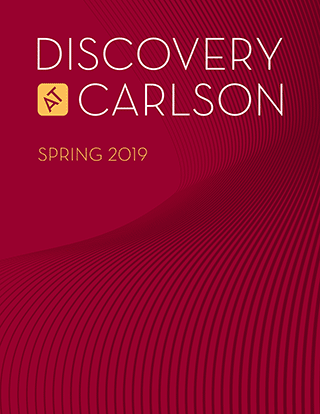
Assistant Professor Jason Chan Uncovers Social Media Tactics Used by Hate Groups
Monday, March 4, 2019
Delve into the complexities of online hate with Carlson School. Stay informed on Chan's research, addressing the challenges and implications of online hate in today's digital landscape.
In 2015, when a 21-year-old named Dylann Roof walked into a South Carolina church and gunned down nine people, it provided a chilling example of research Assistant Professor Jason Chan had just published a month earlier.
A young man, a lone wolf acting on his own, inspired by white supremacist information culled from the Internet, acted on his outrage to horrific results.
“What they found in his home was he had been talking to hate groups online and they had been inspiring him, prodding him to fight for his rights,” Chan says. “That confirmed a lot of our findings, that nowadays hate groups are using online channels to slowly groom individuals and providing motivation for them to carry out hate-related attacks.”
How online access helped hate
Chan and his co-authors researched the relationship between the Internet and racial hate crimes in the U.S. and found not just a connection between the two but insights into how online access has changed the nature of those crimes. Data included information from the Federal Communications Commission to track the expansion of broadband, as well as FBI statistics on hate crimes.
“Hate groups are getting smarter, they’re getting people to do their bidding,” Chan says. “They know that getting big and mobilizing their operations online isn’t going to work because they would get clamped down on. The online medium allows them to do covert, behind-the-scenes grooming of people.”
The researchers studied the expansion of broadband from 2001 to 2008 and found that the addition of just one provider led to a 20 percent rise in racial hate crimes. That rise wasn’t universal, however. It showed up more in areas where there was already a predisposition to racism – measured by the researchers in the frequency of racist terms used in online searches.
“The Internet is such an excellent search tool that finds for you exactly what you want to find,” Chan says. “People who are racist are able to find racist sites with powerful search engines. When they do, they connect with like-minded people who support their views, thereby deepening their racially-biased beliefs, providing them with motivation to act on their convictions.”
Not groups, one-to-one conversations
Chan and his co-authors first tried to investigate whether more internet access would enhance the work of hate groups by increasing their size and magnitude of their operations. But they found the opposite to be true. The perpetrators of racial hate crimes induced by the Internet weren’t groups, they were individuals.
“The Internet allows one-to-one communication behind closed doors, so it makes sense,” he says.
Acting on this information comes with free speech challenges, Chan acknowledges, but there are steps that can be taken now.
“There is a need for teenagers to be educated about things seen online,” he says. “Is it true? And if it’s true, is it biased? There has to be literacy to interpret digital media.”
And, as his research shows, there need to be further studies about what he calls “the dark side of the Internet.”
“There is lots of work on how to conduct e-commerce, run social media campaigns, and improve online sales but not a lot of academics are looking at the unintended negative impacts that the Internet is generating,” he says. “And that’s equally important.”

